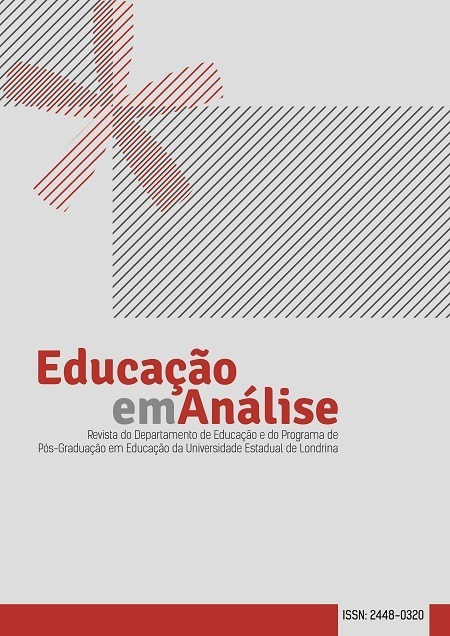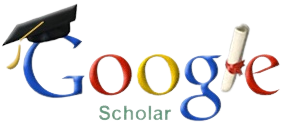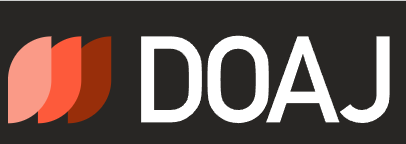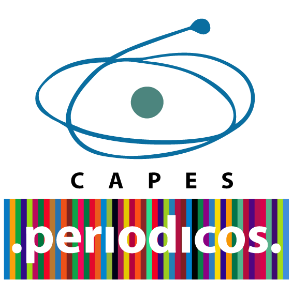Teaching actions, digital technologies and pedagogical innovation
DOI:
https://doi.org/10.5433/1984-7939.2023v8n1p9Keywords:
Pedagogical Innovation, Technologies, Cyberculture, University PedagogyAbstract
This article presents the results of a research that sought to analyze which teaching actions contribute to the organization of innovative curricula that are adequate to the challenges of Higher Education in the 21st century. Theoretically, discussions are presented about the concept of innovation in higher education and its relations with the university curriculum and pedagogy. The clipping refers to teaching actions linked to digital technologies. Methodologically, a qualitative approach was chosen in the context of exploratory and descriptive research. The subjects were six professors from the areas of Health, Applied Social Sciences and Engineering and Technologies of a Community University. Institutional documents were consulted and conversation circles were held using the focus group technique. That said, it is important to highlight that technologies, based on these professors' speeches, in all their dimensions and possibilities, are incorporated by situations of need, which are sometimes unusual and require institutional efforts from university pedagogy to advance together with professors. Regarding actions, teachers consider participation in study groups on innovation and technology, the exercise of self-criticism, understanding the concepts of innovation regarding the use of digital technologies, thinking about pedagogical strategies guided by the perspective of academics in relation to digital technologies. Professors stated that they develop innovations with digital technologies that started in isolation and expand to other disciplines.
Downloads
References
ANASTASIOU, Léa das Graças Camargos; ALVES, Leonir Pessate (org.). Processos de ensinagem na universidade: pressupostos para as estratégias de trabalho em aula. 10. ed. Joinville: Univille, 2015.
ANASTASIOU, Léa das Graças Camargos; ALVES, Leonir Pessate (org.). Processos de ensinagem na universidade: pressupostos para as estratégias de trabalho em aula. Joinville: Univille, 2004.
ANASTASIOU, Léa das Graças Camargos; ALVES, Leonir Pessate. Estratégias de ensinagem. In: ANASTASIOU, Léa das Graças Camargos; ALVES, Leonir Pessate (org.). Processos de ensinagem na universidade: pressupostos ara a estratégias de trabalho em aula. 5. ed. Joinville: Univille, 2009. p. 67-100.
BARNETT, Ronald. Los limites de la competência: el conocimiento, la educación y la sociedade. Barcelona: Gedisa, 2001.
CHRISTENSEN, Clayton M. The innovator's dilemma. Harvard: Harper Collins Publishers, 2002. (Collins Business Essentials).
COELHO, Lívia Dias. Procedimentos de ensino: um movimento entre a teoria e a prática pedagógica. 2. ed. Curitiba: Champagnat, 2013. 177 p.
CUNHA, Maria Isabel. Docência na universidade, cultura e avaliação institucional: saberes silenciados em questão. Revista Brasileira de Educação, Rio de Janeiro, v. 11, n. 32, p. 258-371, maio/ago. 2006. Disponível em: https://bit.ly/3K5tmaQ. Acesso em: 3 ago. 2021.
CUNHA, Maria Isabel. Inovações na educação superior: impactos na prática pedagógica e nos saberes da docência. Em Aberto, Brasília, v. 29, n. 97, p. 87-101, set./dez. 2016. Disponível em: https://bit.ly/3PGCYic. Acesso em: 3 ago. 2021.
DEMO, Pedro. Rupturas urgentes em educação. Ensaio: Avaliação e Políticas Públicas em Educação, Rio de Janeiro, v. 18, n. 69, p. 861-872, out./dez. 2010. Disponível em: https://bit.ly/3PMxCln. Acesso em: 2 jul. 2021.
GIACOMAZZO, Graziela; MORÉS, Andréia; FIUZA, Patricia Jantsch. Inovação e avaliação no cenário da expansão do ensino superior no Brasil. In: CONFERÈNCIA INTERNACIONAL DE RECERCA EN EDUCACIÓ, 1., 2019, Barcelona. Anais [...]. LINDIÌN, Carles et al. (ed.). Albacete: LiberLibro, 2020. p. 583-592. Disponível em: https://bit.ly/3AK2WGT. Acesso em: 16 ago. 2021.
LEITE, Denise; GENRO, Maria Elly Herz; BRAGA, Ana Maria de Souza (org.). Inovação e pedagogia universitária. Porto Alegre: UFRGS, 2011. 256 p.
MOROSINI, Marilia Costa (ed.). Enciclopédia de pedagogia universitária: glossário. Porto Alegre: INEP/RIES, 2006. v. 2.
RIOS, Teresinha Azerêdo. Compreender e ensinar: por uma docência da melhor qualidade. 8. ed. São Paulo: Cortez, 2010.
SANTOS, Boaventura de Sousa. A universidade no século XXI: para uma reforma democrática e emancipatória da universidade. São Paulo: Cortez, 2011.
SANTOS, Milton. O espaço do cidadão. São Paulo: Nobel, 1987.
SAVIANI, Dermeval. Pedagogia históricoâ€crítica: primeiras aproximações. 11. ed. Campinas, SP: Autores Associados, 2011.
Downloads
Published
How to Cite
Issue
Section
License
Copyright (c) 2023 Valdenir Barbosa da Cruz, Graziela Giacomazzo

This work is licensed under a Creative Commons Attribution-NonCommercial 4.0 International License.
Os artigos publicados na Revista Educação em Análise estão sob a Licença Creative Commons Atribuição 4.0 Internacional, garantindo Acesso Aberto. Deste modo, os autores mantêm os direitos autorais de seus trabalhos e, em caso de republicação, solicita-se que indiquem a primeira publicação nesta revista. Essa licença permite que qualquer pessoa leia, baixe, copie e compartilhe o conteúdo, desde que a devida citação seja feita. Além disso, autoriza a redistribuição, adaptação e criação de obras derivadas em qualquer formato ou meio, incluindo uso comercial, desde que a atribuição à revista seja mantida.
A revista se reserva o direito de efetuar, nos originais, alterações de ordem normativa, ortográfica e gramatical, com vistas a manter o padrão culto da língua e a credibilidade do veículo. Respeitará, no entanto, o estilo de escrever dos autores. Alterações, correções ou sugestões de ordem conceitual serão encaminhadas aos autores, quando necessário.
As opiniões emitidas pelos autores dos artigos são de sua exclusiva responsabilidade.
























